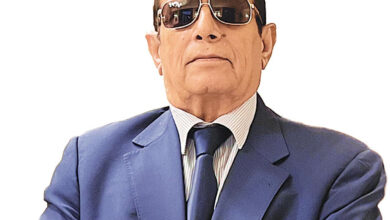India’s 1974 Nuclear Test: Raison d’être
 I never formally interviewed Mrs Indira Gandhi but it was easy to approach and interact with her as she would occasionally visit the old Delhi airport to receive or see off VVIPS.
I never formally interviewed Mrs Indira Gandhi but it was easy to approach and interact with her as she would occasionally visit the old Delhi airport to receive or see off VVIPS.
There was a rather small VIP lounge, and she was invariably well in advance there to welcome the foreign dignitaries. Attired graciously, she never sat down and interacted with officers and journalists if we approached her, patiently replying to whatever was asked, particularly about the bilateral relations concerning the country of the visiting dignitary. The interactions were pleasant, and I must mention, always encouraging.
I had the privilege of doing nearly all the newsbreaks concerning India’s first nuclear test at the start of my career, and my curiosity about diplomatic and technological developments was natural. In one of the airport interactions, I asked her for the test’s raison d’être.
Balancing China, and the high table at the UN Security Council which India deserves, was her answer.
It was her father, Jawaharlal Nehru, a perfect gentleman and statesman of the times who had facilitated China’s entry into the UNSC. But China hurt India by attacking us in 1962, and Mrs Gandhi later realised that India has to establish its place in the hard world. Policy decisions set by her are still the guidelines for India notwithstanding the periodic changes in political leadership.
The US was then keen for a military alliance with India against both China and the erstwhile Soviet Union. India was however right in opting out of the two Cold War blocs led by Washington and Moscow.
Washington was unforgiving, and initiated the Nuclear Suppliers Group (NSG) and other denial regimes against India, even though New Delhi never shared or spread nuclear or missile technologies.
Morarji Desai and VP Singh have been the only two Prime Ministers to block India’s nuclear and military programmes. Desai, who succeeded Mrs Gandhi after the Emergency in 1977, removed 600 civil and military personnel who also worked for the country’s external intelligence agency, RAW, while VP Singh, building up on allegations of corruption against Rajiv Gandhi in the 1986 Bofors deal, added a lie that the gun was of poor quality, fired backwards and killed own troops.
Their reasons were different though. Desai had high moral principles and did not believe in the strength of military and intelligence apparatus while the politically wily VP Singh wanted to replace Rajiv Gandhi as Prime Minister. It was easy to amplify charges of corruption in most or all military deals.
Narasimha Rao took the nuclear programme forward but could not conduct a second nuclear test due to the US pressure. He advised his successor, Atal Behari Vajpayee, to do that and the 1998 tests followed.
Those were the days when India could not even buy heavy water for its operational civil nuclear reactors. In fact, RAW, which had a small business jet for communications, had to buy a replacement windscreen from the black market at three times the price, thanks to the US-imposed restrictions.
The US, and the world, have realised that while India has struggled to develop capability to find its rightful place in the world order, it has always meant well.
Prime Minister Modi has worked hard in this perspective, and thankfully, Washington is undoing its past follies – or misunderstandings. India is now getting membership of MTCR. I hope NSG, and the UNSC happen in our lifetimes.
Well done, Mr Modi. Thank you, President Obama.
Gulshan Rai Luthra




